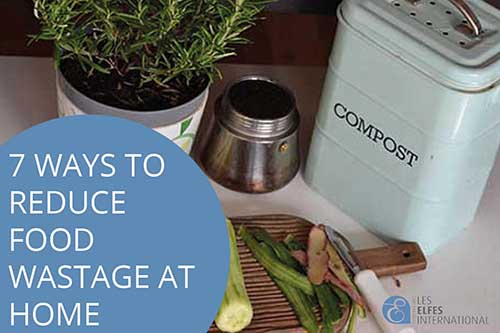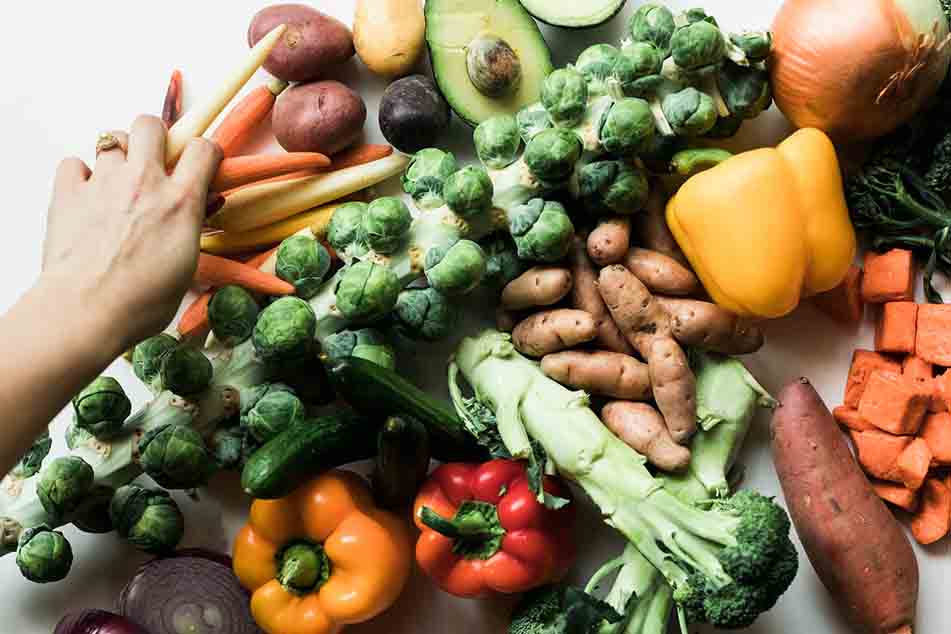With so many suffering from food insecurity and nutritional inadequacies, it’s sobering to consider how much food wastage there is around the world, particularly in developed countries. Some of the massive food wastage that takes place occurs after harvest and during food processing, but it also occurs in supermarkets and at home. In fact, a third of all food produced ends up as wastage. Sobering statistic, isn’t it?
Food waste doesn’t merely deprive people who need it of nutrition; the food that’s tossed ends up in a landfill where it produces methane gas that’s harmful to the environment. You may not be able to control the wastage that occurs outside your living quarters, but there are ways to cut back on food waste at home. Even small changes can have an impact. Let’s look at seven ways to do this.
At Les Elfes we serve food coming from the region.
Find out Les Elfes International Winter Camps 2022!
Don’t Buy More Than You Need
It’s easy to get distracted at the grocery store and end up buying more than you really need. All the brightly colored packages and coupons that entice you to purchase, but how much will end up being tossed? Plus, most packaged foods are a poor investment in your long-term health. The risk of overbuying is even greater if you shop when you’re hungry or bring the kids along. Change your shopping approach. Plan the week’s menus ahead of time, make a list, and stick to it. Avoid the urge to impulse shop at the grocery store. Planning ahead is also easier on your budget.
Buying in Bulk Isn’t Always a Bargain
Buying items in bulk can save you money, but not if half of what you buy goes to waste. Don’t be so focused on a bargain you buy more than you need to save money. Buying in quantity only works well for items that you actually use. For example, don’t purchase five loaves of bread to get a bulk price when you know you can only use one. Some people get so wrapped up in copping a bargain, they forget that it’s not a deal if they can’t use it.
Store What You Buy Properly
Another way to reduce waste is not to let what you buy spoil before you use it. Fresh produce has a limited shelf life, and if it gets moist, its lifespan will be even shorter. If you can’t use produce quickly, buy frozen vegetables instead. Studies show that frozen produce is as healthy, if not more so, than fresh since frozen fruits and vegetables are harvested at the peak of freshness. Unlike fresh produce that loses nutrients as it sits on shelves, freezing locks in nutrients. You can also freeze fresh foods – right from the garden!
Compost Your Leftovers
Food scraps are not something people think about, but everyone has some in their kitchen — in the fridge, in cooking pots, and on dinner plates. There are no escaping food scraps! Instead of holding onto this organic waste to rot in the trash, compost your leftovers. Composting is easy to do and can greatly reduce the amount of waste you send to landfills. If you don’t want to compost yourself, there are other options available to you. You can hire someone to do it or donate the leftovers to a local farm or pet shelter with an area where they can be used in composts. Compositing is good for the planet too.
Don’t Be Afraid of Ugly Produce
Ugly produce, produce that’s a bit deformed or not as pretty, still provides nutritional value, and you can often get it at a cheaper price. It’s a win-win! By buying ugly or irregular produce, you keep it from being tossed or wasted, and you save money too. Keep an open mind and stop looking for perfect produce and help take a bite out of food wastage.
Donate What You Can’t Use
If you accidentally buy packaged produce you can’t use, don’t toss it into the garbage where it will end up in a landfill. Instead, donate it to a food bank. When you do this, you’re taking a bite out of hunger in your local area. What doesn’t work for you can be a source of sustenance for someone in need. Be part of the solution by donating to your local food bank. They’ll love you for it!
Don’t Let Your Fridge and Cabinets Fall into Disarray
When your cabinets and refrigerator are disorganized, it’s easy to let foods sit past their expiration date. Arrange the shelves of your fridge and cabinets, so that older items are toward the front and newer ones in the back. It’s easy for items to get “lost” in a vast fridge or in spacious cabinets, and go past their expiration date unused. Also, track expiration dates weekly and designate items that will soon expire as a priority. Additionally, know that many expiration dates have to do with food quality, rather than whether something is safe to eat. Know what phrases like “use by” mean.
Conclusion
Food wastage is a major issue worldwide, and reducing it is a good way to help the environment and your pocketbook. Be part of the solution and a friend to mother Earth and the environment by valuing her resources.
After an intense skiing day, our students receive hot and nutritious meals.
Learn more about Les Elfes Winter camps for kids and teens.











